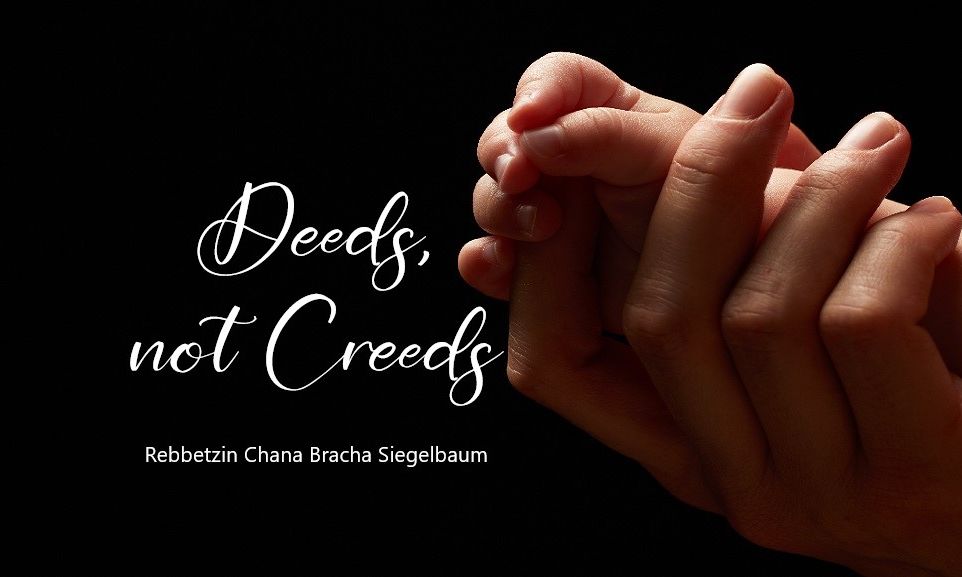
Emor: Deeds, not Creeds
If you love Torah and what matters to you is becoming close to G-d, this is what your child picks up, no matter which educational approach you follow…

Parshat Emor
INTERMARRIAGE – THE EXCEPTION AMONG ISRAEL
This week’s parashah tells the story of the son born from a Jewish mother and an Egyptian father who blasphemed Hashem. His mother, Shelomit bat Dibri, was an extremely attractive woman. One day an Egyptian taskmaster in charge of one hundred and twenty Jewish slaves, noticed her when he went on his usual rounds to the homes of his workers in order to assemble them. With his eye on Shelomit, he called her husband out to work and returned to her house pretending to be her husband. When Shelomit’s husband saw the Egyptian man exit his house, he was concerned and asked his wife whether he had touched her. She answered, “Yes, but I thought that he was you.” Once the taskmaster found out that Shelomit’s husband was aware of what had taken place, he whipped him. This was the Egyptian man that Moshe later killed when he saw with Ruach Hakodesh that he deserved death for committing adultery (Midrash Tanchuma, Parashah 9).
“The son of the Israelite woman, whose father was an Egyptian man, went out among the children of Israel: and this son of the Israelite woman and a man of Israel strove together in the camp; the Israelite woman’s son blasphemed the name of Hashem, and cursed. They brought him to Moshe: (and his mother’s name was Shelomit, the daughter of Dibri, of the tribe of Dan:)” (Vayikra 24:10-11). It seems peculiar that the name of the person who cursed is not mentioned at all, whereas only the name of his mother is stated. Rashi explains that Scripture publicly mentions her name to tell the praise of Israel, that among all the Jewish women during the Egyptian exile, she alone had relations with an Egyptian. Be’er Yitzchak clarifies how we learn Israel’s praise from Shelomit’s deviation. When someone acts in a strange and unexpected way, people want to know who acted this way, whether for good or for bad. The fact that the name of this Israelite woman is noted clearly shows that although her fellow Jews had lived among the perverse Egyptian society for years, being the victim of a relation with a non-Jewish man was considered foreign and strange to them. Shelomit bat Dibri stood out among them, and therefore they noticed her name.
THE POWER OF SPEECH BY WAY OF EXAMPLE
Although one should never automatically blame the victim, in this particular case, Rashi explains that Scripture hints through the meaning of her name that Shelomit was disposed towards being assaulted. She was called Shelomit bat Dibri because she was always babbling: “How are you?”, “How are you?”, and “How are you?” (The name Shelomit is related to the Hebrew salutation shalom). She was a “bat Dibri” meaning talkative; talking with any man in the street, and this is what eventually caused her to get into trouble (Rashi, Vayikra 24:11). Scripture refers to the uncontrolled speech of the mother of the blasphemer to teach us that a mother has a special responsibility to teach her children proper behavior by example. The way we use our Divine capability of speech has repercussions in our children. This does not imply that the mother is responsible for her children‘s actions. It certainly is not for us to judge why many righteous parents have children who deviate from the path. We are also not in a position to judge the children, who may be righteous in disguise. Every person has free choice. However, within the intricate make up of a person’s personality; there is an important aspect of his character that reflects the nature of the mother to whom he or she was attached throughout the formative years.
TRANSMITTING HER ESSENCE TO HER CHILDREN
We would have expected the verse to simply read: “the son of the Israelite woman whose name was Shelomit bat Dibri went out.” Why did Scripture mention the name of Shelomit only after the cursing of her son? Rabbi S. R. Hirsch explains that it was only through her son’s cursing that his mother’s ethical flaw became revealed. A possible explanation for the stronger similarity of a child to his mother than to his father is that a fetus is created from the blood of his mother, and grows within her for nine months. Even after birth, the infant is nourished by her. For this reason, the kings of Israel are often mentioned in Scripture by the name of their mother. When a person is righteous, modest and virtuous, it is often a result of his mother’s positive influence. The good branch testifies to the virtue of the root. Therefore, King David said about himself, “I am your servant the son of your handmaid” (Tehillim 116:16). Radak comments that King David mentioned his mother because she was primary in his formation.
CHILDREN LEARN FROM DEEDS RATHER THAN CREEDS
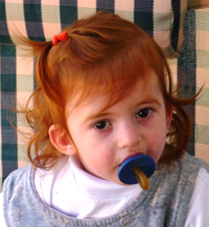 Today, a mother might be confused by the many different approaches to child educating her children. Should she apply a strict disciplinarian method of education or opt for more permissive modern approaches of child rearing? There is no one correct technique of education which can be applied equally to all children. “Educate the youth according to his way… (Mishlei 22:6) Many children turn out to be virtuous human beings regardless of the technique applied in raising them. As an old friend whispered into my ear, “If you love Torah and what matters to you is becoming close to G-d, this is what your child picks up, no matter which educational approach you follow.” Her words convey a deep lesson about child rearing. It is the same lesson inversely which we learn from Shelomit bat Dibri. Her son turned out the way he did, not so much as a result of how he was raised, but rather because of where his mother was holding personally. Her misuse of the power of speech was a seed implanted within her son and taken to its extreme when he blasphemed G-d with this same power of speech. Yet, the Torah does not want us to feel guilty in case our children, G-d forbid, don’t turn out exactly as we may have hoped. Certainly, it would be against the Torah to point a finger at others and blame the mother for the behavior of her children. As mothers, we must realize our great responsibility in building the character of our children, by being aware of who we are, rather than what we teach. On the other hand, we must keep in mind that we can only do our best. Many unknown factors shape the final outcome of our children. May our continued endeavor to perfect our character and get closer to G-d eventually rub off on our children!
Today, a mother might be confused by the many different approaches to child educating her children. Should she apply a strict disciplinarian method of education or opt for more permissive modern approaches of child rearing? There is no one correct technique of education which can be applied equally to all children. “Educate the youth according to his way… (Mishlei 22:6) Many children turn out to be virtuous human beings regardless of the technique applied in raising them. As an old friend whispered into my ear, “If you love Torah and what matters to you is becoming close to G-d, this is what your child picks up, no matter which educational approach you follow.” Her words convey a deep lesson about child rearing. It is the same lesson inversely which we learn from Shelomit bat Dibri. Her son turned out the way he did, not so much as a result of how he was raised, but rather because of where his mother was holding personally. Her misuse of the power of speech was a seed implanted within her son and taken to its extreme when he blasphemed G-d with this same power of speech. Yet, the Torah does not want us to feel guilty in case our children, G-d forbid, don’t turn out exactly as we may have hoped. Certainly, it would be against the Torah to point a finger at others and blame the mother for the behavior of her children. As mothers, we must realize our great responsibility in building the character of our children, by being aware of who we are, rather than what we teach. On the other hand, we must keep in mind that we can only do our best. Many unknown factors shape the final outcome of our children. May our continued endeavor to perfect our character and get closer to G-d eventually rub off on our children! ***
Rebbetzin Chana Bracha Siegelbaum is Director of Midreshet B’erot Bat Ayin in Gush Etzion. This article is an excerpt from her book Women at the Crossroads: A Woman’s Perspective on the Weekly Torah Portion, reviewed by The Jerusalem Post, The Jewish Press, Voices Magazine, Good Reads, and WordPress/JewishPress and more. To order this book, click here.



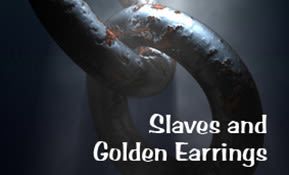


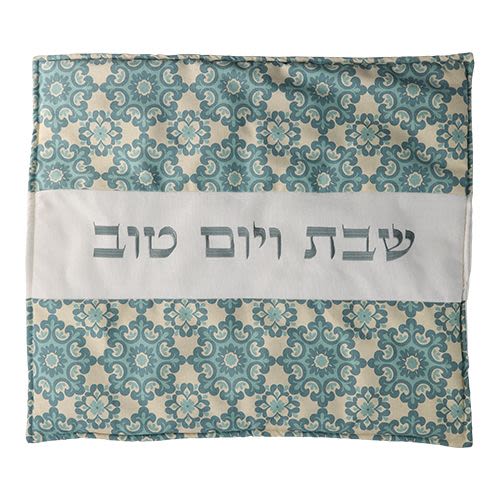
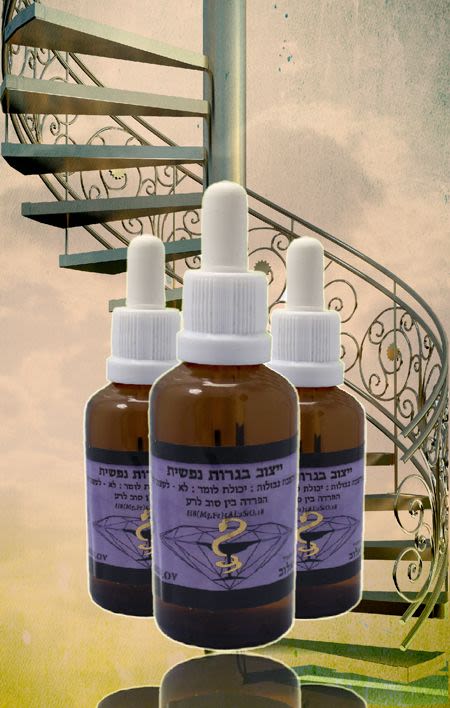
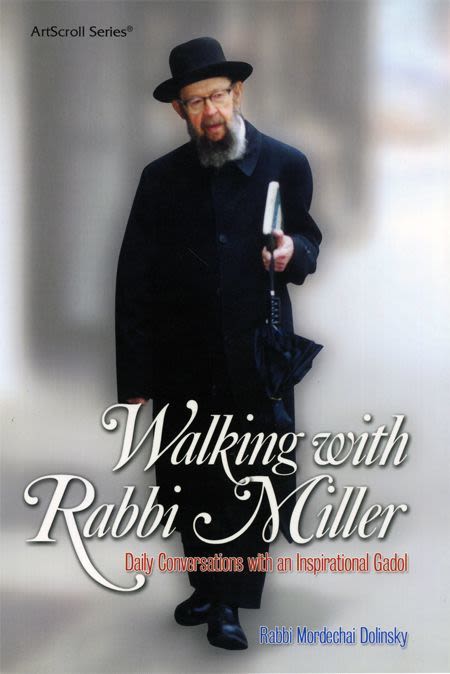
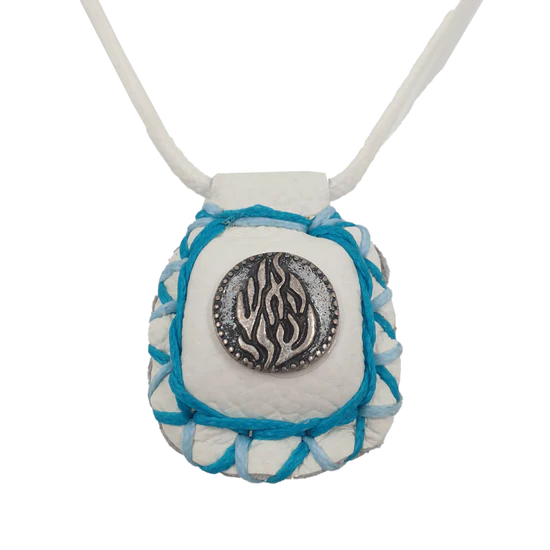
Tell us what you think!
Thank you for your comment!
It will be published after approval by the Editor.